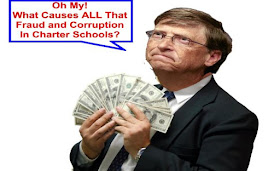Charter schools may be tax-funded, but ‘public’ means...

Houston-area State Rep. Harold Dutton’s recent column about charter schools ignored many facts regarding how charter schools perform and operate, and it failed to address the reasons why the National Association for the Advancement of Colored People passed a resolution calling for a moratorium on new charter schools.
The NAACP’s call for a charter school moratorium is a position informed by NAACP members who attend school board meetings, engage with state legislatures and support students, parents and teachers in their communities. The NAACP is not calling for an end to charter schools but is demanding that before more charters are opened at taxpayer expense, charter schools:
- Be subjected to the same transparency and accountability standards as public schools;
- Cease taking funding away from traditional neighborhood schools;
- Cease pushing out/expelling students for behavior or performance and sending them back to public schools; and
- Stop perpetuating de facto segregation by selecting higher-performing, lower-needs students and screening/pushing out harder- or more-expensive-to-educate students.
Charter schools proclaim themselves public schools, but the only thing public about them is that they are publicly financed. Charters are governed by unelected boards and lack the transparency that traditional, democratically elected school boards are required to maintain. Lack of public oversight has often produced dismal results here in Texas, where dozens of charter schools have had to close in recent years due to financial mismanagement, low performance and in some instances fraud. Some charters, including one here in Austin, have even shut their doors abruptly, leaving students scrambling and public schools picking up the pieces.
Children First charter, which operated schools in Houston and Dallas, was shut down by the Texas Education Agency for taking millions of dollars without properly documenting attendance, failing to perform required background checks on employees, issuing a $4 million construction contract without a bid and paying hundreds of thousands of dollars to relatives of the superintendent for work TEA says was not performed.
Larger chain charter schools operate within an opaque and tangled web of financial relationships where the lines between nonprofit and for-profit become blurred. Appointed board members often have financial interests in companies that do business with the charter chain. Chain charters like IDEA Public Schools pay exorbitant salaries and bonuses to a CEO (the IDEA CEO earns $430,000 a year) while also paying large amounts of money to superintendents and deputy superintendents.
Chain charters receive millions of dollars in startup support from billionaires and corporate foundations whose agenda is to privatize public education. IDEA, which got its start in the Rio Grande Valley and has schools in Austin and San Antonio, recently received a $16 million dollar gift from a local philanthropist. This private money will give IDEA a financial launchpad to continue marketing its schools to Austin parents and will ultimately drain taxpayer money from our neighborhood public schools. Several years ago, Austin residents rebelled when former Austin ISD Superintendent Meria Carstarphen turned over two Austin ISD campuses to IDEA. The issue was resolved when three new school board members were elected with broad community support and canceled the IDEA contract.
Regarding the performance of students who attend charter schools, claims of charter superiority don’t stand up to the facts. Charter school students in Texas underperform their peers in public schools, and ongoing studies from the Texas Education Agency and other groups have confirmed this year after year. Under state accountability measures, charter school systems are three times more likely than traditional school districts to receive a substandard rating. When you look at statistics for economically disadvantaged kids, charters do not perform better than traditional public schools, even though the students they attract (remember, students have to apply to be admitted) tend to be higher-performing than the general population from which they come.
We applaud the NAACP for its recognition that we can’t afford a segregated system with public schools fighting for much-needed funding while charters run on a for-profit model with little transparency and accountability for taxpayer dollars. We can afford and should be investing more in our true public schools, which are the foundations of our communities and neighborhoods.Malfaro: Charter schools may be tax-funded, but ‘public’ means... | www.mystatesman.com:
Malfaro is president of the Texas branch of the American Federation of Teachers, which represents more than 65,000 public school employees statewide.


